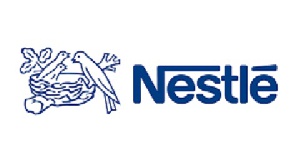 Nestle Ghana has over the past 60 years, has produced products of high nutritional value
Nestle Ghana has over the past 60 years, has produced products of high nutritional value
Nestle Ghana, has recapped its success stories and the commitment of the Company to maintaining its production of high quality products to meet the safety and nutritional standards of consumers.
It said it would never compromise on its quality assurance or lower standards at any stage of the production chain, but rather pursue vigorous objectives and strategies aimed at addressing the nutritional needs, and also encourage healthy lifestyle of populations of all ages through education and the production of diverse products with high nutritional contents.
Ms Freda Y. Duplan, the Managing Director of Nestle Ghana, reiterated these commitment at a media workshop on “the Importance of a Safe and Healthy Lifestyle”, in Accra, which was aimed at enhancing the capacity of the media as stakeholders in the public campaign and education on national wellness through quality nutritional practices, for sustainable development.
She said good nutrition was an important baseline factor to the attainment of a healthy population, which then translated into achievable national goals and development at all levels.
This, she said, was the main reason why Nestle Ghana, had over the past 60 years, maintained its commitment to producing products of high nutritional values and kept enhancing their qualities over the period.
“We have made a commitment to ensure a healthy lifestyle of about 50 million Ghanaian children by 2020, and further impact on the lives of over 30 million people living in the various communities across the regions where were have been working on life changing projects,” she said.
Ms Duplan said the safety and quality of the Nestle Ghana products were non-negotiable, and recounted how the company’s products which ranged from dairy and non-dairy products as well as the confectionaries, had provided a nutritional balance for consumers, and new products remained under research and were hoped to add on to existing ones on the market.
She urged the media as stakeholders, to partner with Nestle to intensify public education on proper nutrition and healthy living and help the company in making informed choices and decisions that would lead to the achievement of major outcomes in under the Sustainable Development Goals (SDGs).
Ms Maria Lovelace-Johnson, the Head of the Food Safety Management Department of the Food and Drug’s Authority (FDA), commended Nestle Ghana for maintaining an uncompromising position in its production standards over the years.
The FDA, she said had closely followed the company’s activities and provided basic services in the areas of ensuring compliance to the divers legislation governing the industry, and attested to the high level of integrity and commitment to food safety, quality assurance and maintenance of high production standards and specifications.
She however said with the advent of climate change and its adverse effect, food security was being threatened and impacting negatively on areas including the agricultural, environmental and socio-economical performances.
This has in effect led to a wide range of nutritional challenges including stunting, anemia, diabetes and low birth weights, however consumers were currently becoming increasingly knowledgeable, with the expanded technology, and were now demanding for quality products to meet their nutritional needs.
Ms Lovelace-Johnson said involving the media was very crucial not only for expanded public educational campaigns maintaining on quality and healthy lifestyles, but also to support the work of the FDA in the enforcement of key legislations on food safety and to expose offenders of the law for appropriate sanctions.
She admitted that enforcement of legislations had been very challenging for the FDA owing to the fragmentation of regulations and guidelines, and advocated the harmonisation of these laws into a single national food policy, for more effective monitoring and enforcement.
She called on stakeholders saying “food safety is a shared responsibility”, so for the FDA to achieve its mandate of ensuring food safety, security, quality as well as a well regulated food industry, Ghana would achieve the SDGs by the stipulated date.